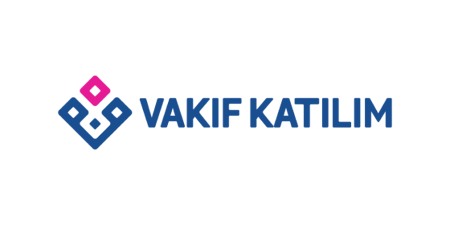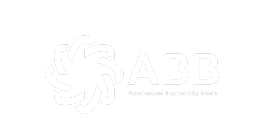
Industry:Banking and Financial Services
Region:Europe
Client:Vakıf Katılım
Vakıf Katılım maintains focus on customer service with RPA

68
working days saved per year
12
processes automated in the first 6 months
$100k
saving in the first 6 months
$1MIL
Projected in saving in the first 3 years
Client Overview
Vakıf Katılım Bankası A.Ş., a young, innovative player in Turkey’s participation banking sector, was founded in 2016 with 100 per cent public capital investment. Since its founding, the core vision of the Vakıf Katılım bank has been to become a point of reference among similar institutions through its use of new technologies that can drive operational efficiency and better customer service.
RPA delivers time, improved efficiency and error reduction. In the last couple of years, the bank saw a rise in the number of both customers and routine operational transactions across divisions such as the Credit Department, Reporting Department, Human Resources, Data Analysis and Data Capturing. As the bank made a point to maintain the same level of customer service, the increased volume became a challenge.
Envisioning a further enhanced customer experience, the improvement of internal business processes and a boost in the employees’ satisfaction with their workplace, the management of Vakıf Katılım developed a comprehensive agenda to introduce technology that could support the bank to meet these demands. To this purpose, the bank looked at technologies such as robotic process automation (RPA), data analytics, blockchain, and machine learning, among others.
Across various functions, the bank’s staff were spending most of their working day performing high-volume, error-prone routine operations. In HR, employees were manually dealing with reimbursing health costs and approving employees’ leave requests. For this process, they had to sign in to the Turkish Social Security Institution website and perform the action for the bank’s over 100 branches. In the Credit Department, employees manually created credit controls and credit reports, in accordance to regulations imposed by the governmental Credit System.
Increasing efficiency, eliminating error and freeing up staff’s time for higher value tasks were some of the main reasons why Vakıf Katılım decided to decisively embrace RPA. They kickstarted the journey by training every employee with operational duties to become automation architects, and – alongside Linktera, a UiPath implementation partner – organized a hackathon to tackle the first processes the teams had identified as suited to automation and create the first results. The hackathon brought together 100 employees from the HR, Credit, Internal Audit departments, from within the bank’s R&D center and from its board of directors.
To ensure a wider and deeper understanding of the capabilities of RPA by business units and the relevant teams, the bank implemented an extensive internal communication process to deliver information across the board. Also, an ‘RPA architect’ was positioned in each department.
Now, thanks to the trainings and the comprehensive set-up, every department can automate those processes that are a good fit for RPA, delivering towards the initial goals.
Existing processes have been easily optimized, and business units can now add new processes in accordance with their needs, designing them exactly how they want them to be. For larger scale projects, they can still rely on the bank’s IT department.
After introducing ‘HeRobot’ – a software robot to perform various automations in the company—the bank gained more than 600 hours a month as the robot was able to complete the tasks that would have taken an employee a workday in just 45 minutes.
Beyond the time gain, automated workflows have removed errors that were affecting various transactions and enabled employees to spend time on more value-added tasks, increasing their productivity in the process.
With RPA expertise at hand, business units also gained basic programming capability along with IT department units. They saved precious time by developing software robots according to their own needs on the UiPath platform. Therefore, a new line of business units emerged, in tune with technology, that were more willing and able to meet their own needs.
Mustafa Burak Coskun • IT Unit Manager
Scaling with UiPath across the bank's operations
Applicability, ease of use, technical support and flexibility are key to a successful RPA deployment at scale. Moreover, when a public institution implements a new technology, they are expected to become an example for best practices within their sector. Therefore, Vakıf Katılım had solid requirements from their RPA solution provider, including: an agile comprehensive technology platform, experience with similar implementations, reliable customer support, and very importantly, compliance with government protocols.
With its end-to-end software platform for hyperautomation, UiPath has proven to be the right technology vendor for the bank. The company’s hyperautomation platform combines the market-leading robotic process automation (RPA) solution with a full suite of capabilities, including process mining and analytics, that enable every organization to scale digital business operations at unprecedented speed. And the benefits were immediate.
Beside the reliable technology, the bank benefits from implementation partner Linktera’s pragmatic approach to automation and experience in consulting and project management. They helped the bank achieve short-term benefits while creating a long-term transformation.
As a result, Vakıf Katılım’s major directorial departments – Internal Audit and Legislation, Treasury, Product Management and Internal Audit, Insurance and Corporate Solutions and Account Research – all conducted seamless RPA integrations.
The software robots have taken on several mission-critical processes, including: reports that must be prepared for the Revenue Administration of the bank’s Treasury Directorate, approval of the health reports of the employees in the Health Payment System and collection of the Temporary Disability Allowance processes by the HR department. Additionally, robots are also in charge of getting the bearing price information from Istanbul Stock Exchange, completing the missing data and creating a report via excel, and ensuring the data entry by sending an email.
This has brought major relief to teams working long hours conducting a large volume of tasks under pressure, as all of these processes have sharp deadlines and failure to meet them may result in fines and sanctions for the bank.
The introduction of software robots to the workplace also improved the accuracy of many processes. For example, when collating price data from sites like the Istanbul Stock Exchange (BIST) that deliver information after working hours and comparing them with the prices in the bank’s system, then updating where necessary, employees were spending many hours doing manual work that is also highly exposed to human errors. In turn, due to a domino effect, this can have a negative impact on the process, by changing whole calculations in the bank’s systems. Having automated the process end-to-end, it is now performed by software robots, with no human input needed at any stage. And these are just some examples—there is a multitude of other routine processes that have also been automated, which have yielded fast and tangible results.
Automating complex tasks with OCR
For the bank, any given letter of indemnity used to take two days before being approved. By employing optical character recognition (OCR), they are now handled by software robots, bringing the time required for the process down to two or three hours, with a 60-percent efficiency.
In fact, the UiPath embedded OCR feature revolutionized the bank’s access to document contents that are currently in PDF format, and fast reading helped a great deal with the routine Participation Banking compliance controls. This process reduced potential reputational risks associated with participation in banking principles. Now, when the bank receives foreclosure documents from official institutions, they are scanned and then software robots get them in a PDF version. The data they gather by reading the documents is very rapidly entered into the main banking system.
Before the RPA implementation, credit allocations for enterprises took about a week to finalize, and that was a major obstacle to customer satisfaction. Once credit allocations were automated, the processing time was reduced by 75 percent, and this translated not only into more satisfaction for existing customers, but it also in a bigger number of customers to the bank.
In HR, automating the process of cross-checking the data of the personnel on sick leave with SGK (the Turkish Social Security Institution) resulted in saving the equivalent of to workdays every month.
Similarly, compulsory and routine end-of-month tasks like legal reports required overtime shifts that often extended until midnight to be completed. Now these are performed without human intervention, ensuring that the bank’s employees have a stress-free monthly closure.
Overall, thanks to the current RPA deployment, Vakıf Katılım ensures higher workforce earnings, reduces reputational risks and enhances compatibility with participation banking principles.
Beyond the time gain, the automated workflows have removed errors that were affecting various transactions and enabled employees to spend time on more value-added tasks, increasing their productivity in the process.
During our Proof of Concept (POC) period, we tried products from various providers. None of them proved to be as efficient as UiPath. Our decision to proceed with UiPath was based on their reliability, experience and full compatibility. The most significant feature is that Vakıf Katılım’s main banking practices work seamlessly and in harmony with the UiPath hyperautomation platform.
Bulut Karadag • R&D Service Manager
Turkey is at the forefront in driving digital transformation in the banking sector by adopting state of the art technologies from financial IT infrastructure, mobile and web applications to security support. Vakıf Katılım aims to be a prominent player in the market by introducing innovative solutions to specific industry challenges.
Vakıf Katılım’s R&D and Innovation department, aside from developing policies, is also heavily involved in project execution. The department’s scope includes publications, articles and documentation of R&D outputs. While catering to R&D reporting for both internal and external stakeholders like ministries, the most recent addition is its RPA deployment.
That is why the most recent European PSD2 (Payment Services Directive) regulation is no challenge for Vakıf Katılım. The Turkish Payment Services Act in compliance with EU directive requires more agility and the bank’s flexible and multi-stakeholder structure is bound to adapt seamlessly to the evolving Fintech ecosystem.
To conclude, RPA plays a crucial role in supporting Vakıf Katılım to adapt to changes, while placing the bank in a position where it has a clear competitive advantage.
Related case studies
Ready for your own case study?
Speak to our team of knowledgeable experts and learn how you can benefit from agentic automation.






